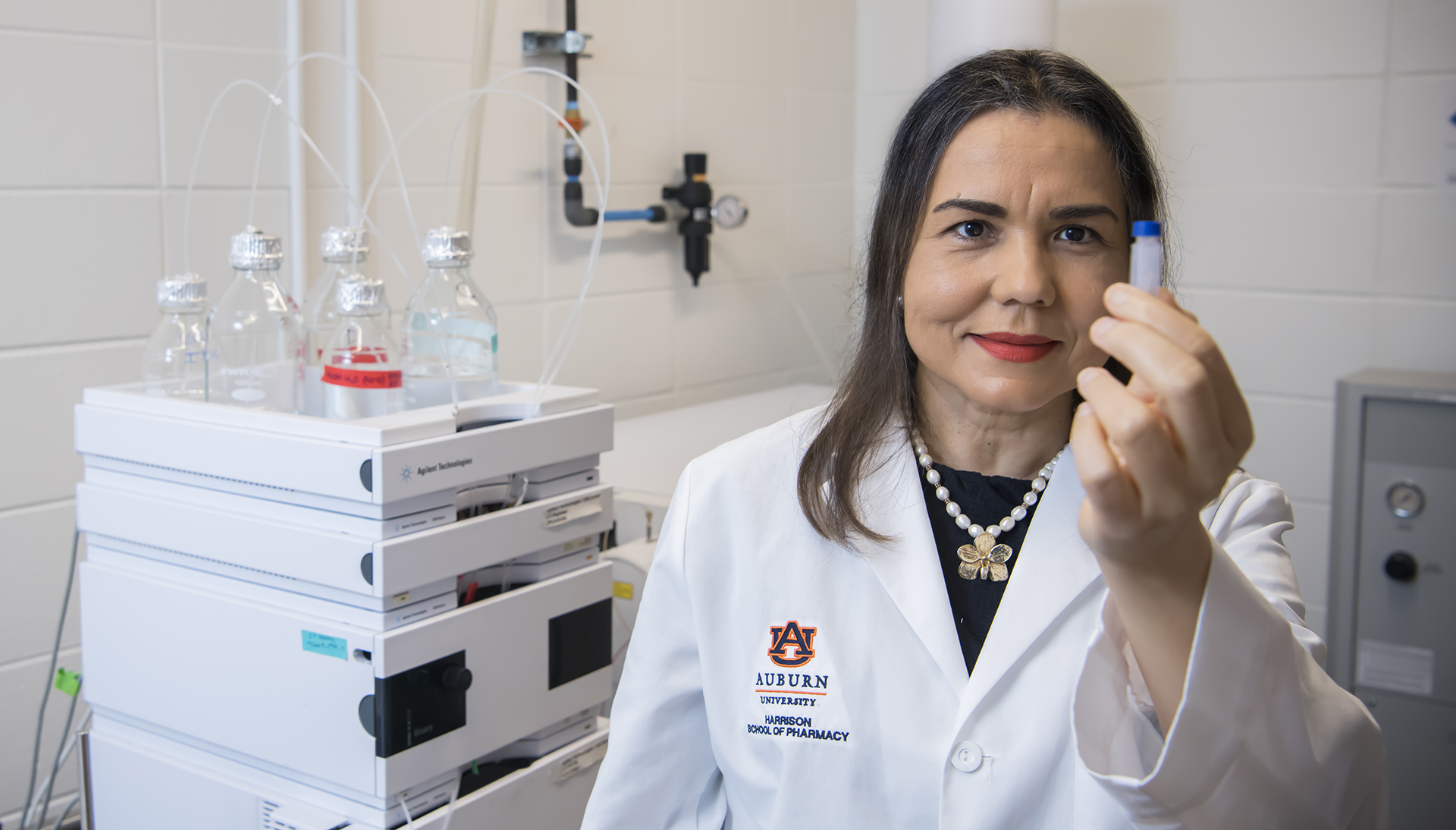
March 11, 2024
AUBURN, Alabama – For those going through the mental and physical stress of living with human immunodeficiency virus, or HIV, another challenge is how other substances, from medications, natural substances and illicit drugs can affect the therapies. The Harrison College of Pharmacy’s Dr. Angela Calderón is currently leading a study to investigate interactions between these therapies and the natural botanical kratom.
Titled “In vitro assessment of kratom pharmacokinetic CYP interactions with HIV ART drug metabolism,” and funded by the National Institute on Drug Abuse, the project will investigate the interactions between extracts of Mitragyna speciosa, also known as kratom, and certain HIV antiretroviral drugs that could affect the success of the HIV antiretroviral therapy.
“Individuals living with the stress of HIV are at increased risk of substance abuse, including abuse of natural substances, such as kratom, said Calderón. “This investigation will address the critical safety issue of botanical-HIV drug interactions as natural substances can alter therapeutic drug levels in the blood and thereby affect the safety and efficacy of HIV drugs.”
Calderón, Gilliland Professor in the Department of Drug Discovery and Development, is the principal investigator on the project, and is joined by co-investigators Dr. Richard Van Breemen, professor of pharmacology and pharmacognosy at the Oregon State University College of Pharmacy, and Dr. Satyanarayana Pondugula, professor of veterinary anatomy with the Auburn University College of Veterinary Medicine.
Kratom is a naturally-occurring botanical from the coffee family, primarily found in southeast Asia. Two of its compounds, mitragynine and 7-hydroxymitragynine, interact with opioid receptors in the brain and those that consume it report stimulant-like effects, as well as effects similar to those of opioids and sedatives.
Investigating the effects of kratom is important as the pharmacokinetic interactions caused by it can affect enzymes and drug transporters and can either enhance the toxicity of a therapy or reduce its efficacy. Specifically, regarding HIV antiretroviral therapies, it is known that opioids can decrease their efficacy, so it is important to learn more about kratom because of its opioid-like effects.
“When an opioid-like recreational drug such as kratom is introduced, botanical-drug interactions can occur that interfere with the efficacy of these established interventions, since the majority of antiretroviral therapy drugs are metabolized by the same cytochrome P450 pathways that metabolize opioids,” said Calderón. “Furthermore, since opioids usually decrease the efficacy of these regimens and increase toxicity, adverse drug events ensue and a serious and significant gap remains in our understanding of the these botanical-drug interactions.”
Deaths attributed to interactions between kratom and other drugs have been reported around the country. This study is innovative in that it is the first of its kind to investigate interactions between kratom and HIV antiretroviral therapy drug regimens.
Calderón and her team ultimately hope to provide evidence to guide the safe and naturally accompanying use of kratom with these drugs.
“Understanding the significance of this and other potential pharmacokinetic interactions with kratom is essential for ensuring the safe and effective use of antiretroviral therapy,” said Calderón. “By enabling the fundamental understanding of interactions between HIV drugs and kratom constituents, this project will provide a rationale for confirmatory clinical trials and ultimately, an improved efficacy of HIV treatment protocols.”
----------
Auburn University’s Harrison College of Pharmacy is ranked among the top 25 percent of all pharmacy programs in the United States, according to U.S. News & World Report. Fully accredited by the Accreditation Council for Pharmacy Education (ACPE), the College offers doctoral degrees in pharmacy (Pharm.D.) and pharmaceutical sciences (Ph.D.) while also offering a master’s in pharmaceutical sciences. The College's commitment to world-class scholarship and interdisciplinary research speaks to Auburn's overarching Carnegie R1 designation that places Auburn among the top 100 doctoral research universities in the nation. For more information about the College, please call 334.844.8348 or visit http://pharmacy.auburn.edu.